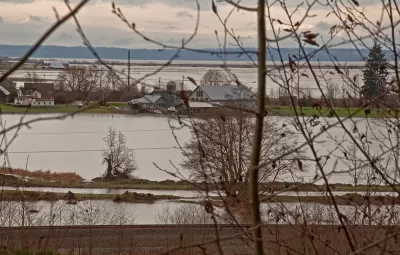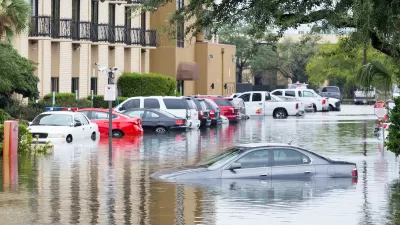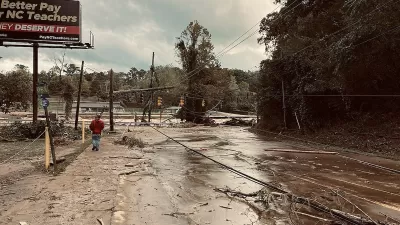New policies may be needed to encourage more responsible development and keep builders from constructing structures that will inevitably be flooded.

While floods can happen quickly, and the specifics of any individual flood can be surprising, they do happen regularly. According to a report from the Pew Charitable Trusts, "Flooding is the most costly and most common natural disaster in the United States."
Some of the cost may be mitigated by regulation and development. Some properties face flooding again and again, and the costs of these disasters add up. According to the story, "1 in 10 repeatedly flooded properties have received payments worth more than their value." Because some areas are more likely to flood than others, the piece argues there may be a way to create laws that lessen the property damage. It goes on to say, "The Pew Charitable Trusts supports proactive policy solutions that will break the cycle of repeated flooding and rebuilding in order to better prepare people and property for natural disasters, improve public safety, and put the NFIP [National Flood Insurance Program] on stronger financial footing."
What is not covered in the Pew piece is the political cost of keeping those who have suffered a natural disaster, or many disasters, from rebuilding. Even if policies might make logical sense, they may be difficult for public servants to enact.
FULL STORY: Repeatedly Flooded Properties Cost Billions

Maui's Vacation Rental Debate Turns Ugly
Verbal attacks, misinformation campaigns and fistfights plague a high-stakes debate to convert thousands of vacation rentals into long-term housing.

Planetizen Federal Action Tracker
A weekly monitor of how Trump’s orders and actions are impacting planners and planning in America.

Chicago’s Ghost Rails
Just beneath the surface of the modern city lie the remnants of its expansive early 20th-century streetcar system.

Bend, Oregon Zoning Reforms Prioritize Small-Scale Housing
The city altered its zoning code to allow multi-family housing and eliminated parking mandates citywide.

Amtrak Cutting Jobs, Funding to High-Speed Rail
The agency plans to cut 10 percent of its workforce and has confirmed it will not fund new high-speed rail projects.

LA Denies Basic Services to Unhoused Residents
The city has repeatedly failed to respond to requests for trash pickup at encampment sites, and eliminated a program that provided mobile showers and toilets.
Urban Design for Planners 1: Software Tools
This six-course series explores essential urban design concepts using open source software and equips planners with the tools they need to participate fully in the urban design process.
Planning for Universal Design
Learn the tools for implementing Universal Design in planning regulations.
planning NEXT
Appalachian Highlands Housing Partners
Mpact (founded as Rail~Volution)
City of Camden Redevelopment Agency
City of Astoria
City of Portland
City of Laramie





























